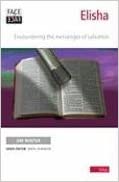This is not a handbook offering Christians definitive guidelines to help them navigate the shoals of therapies that lie outside mainstream medicine – treatments that range from the almost respectable, such as osteopathy, to the downright odd, such as Angel and Crystal therapies.
Rather, the book requires its readers to make up their own minds about these therapies based on research into their effectiveness and safety. The only piece of direct advice I could find was to avoid Reiki, since ‘Christians, who are instructed not to embark on communication with spirits and spirit guides should clearly not pursue it’.
Dr Coker’s survey is given from a mainstream medical scientific view, the most interesting section being a rather limited list of alternative therapies with mainly scientific rather than spiritual observations.
Dr Robina Coker is a member of the Christian Medical Fellowship and a senior academic and researcher at a prestigious teaching hospital. This shows, as the book is written in the style of a medical undergraduate textbook. It has ample references, and each chapter ends with a section labelled, ‘For reflection on your own or for discussion in a small group’ – where you can test yourself and discuss your understanding of the preceding chapter.
The book is divided into eight sections – What is complementary and alternative medicine (CAM)?; A historical perspective; Why CAM?; CAM – some challenges; Fact or Fiction; A Christian response; The essential A to Z guide; and, Assessing CAM therapies. These titles are a good indication of the content, though some sections are only loosely relevant to the book’s title.
Many mainline doctors dismiss CAM as unscientific, unproven and dangerous, and deny their patients access to such things as osteopathy – which is much more effective in treating mechanical back pain than mainstream medicine. Again, many Christians dismiss all ‘talking therapies’ as of demonic origin. Dr Coker recognises these two extreme views and quite rightly exhorts her readers to use their critical faculties in judging any therapy.
The section on research and regulation is well presented and balanced, and worthwhile for any doctor to read.
However, it is not easy to see who would be the typical reader of this book. The introduction implies that the book is suitable for both medical professionals and interested lay people. But in attempting to appeal to both constituencies, this reviewer felt it fell between two stools. The lay person would find it heavy going and not sufficiently directive, while the medical professional would find it insufficiently factual in comparison to a normal textbook.
If you want a wide-ranging tour of medicine, with a Christian and balanced slant on alternative therapies, then this book will fit the bill. But it doesn’t provide firm Christian advice about any specific therapy (except Reiki) or tell you which therapy a Christian can safely use to treat anxiety.















